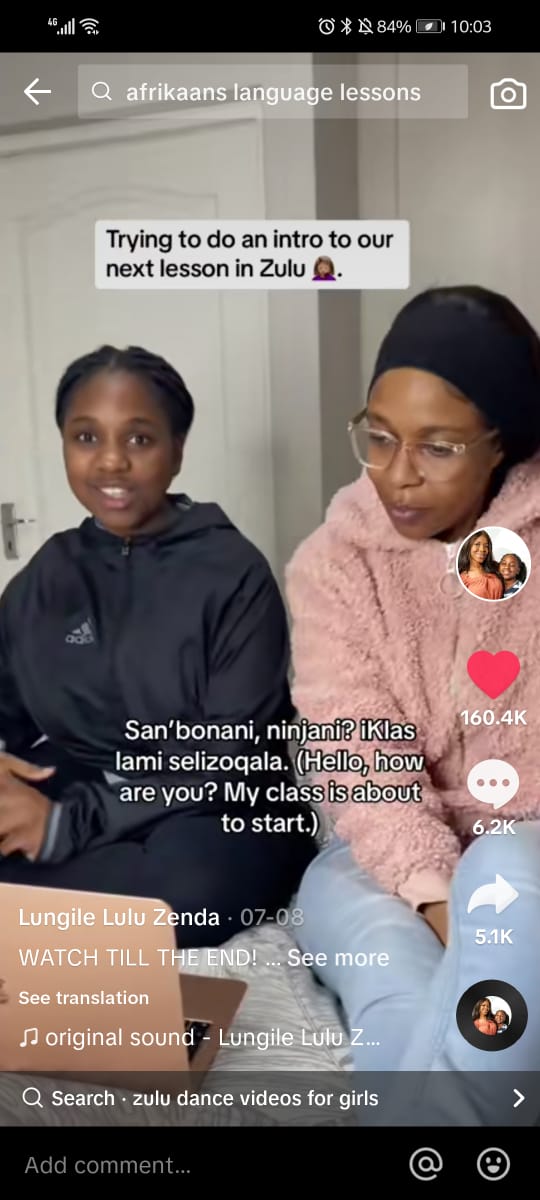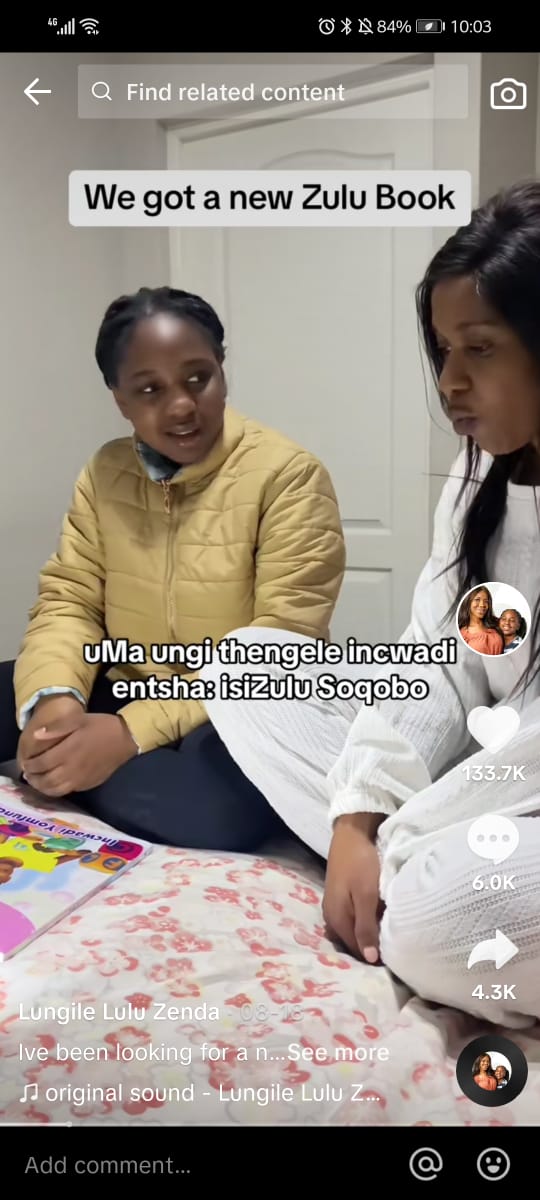HERITAGE MONTH EDITION: Lungile Zenda hopes to inspire parents to teach their children their mother tongue
Share

The debate surrounding teaching our children their native mother tongue has been an ongoing discussion on various South African platforms. And while our native languages are seemingly diminishing, Lungile Zenda has taken to correcting this error by teaching her daughter her mother tongue, isiZulu, and they share their learning journey on Tiktok.
When she initially posted their videos, she shared that she didn’t expect to gain such traction. But with every post and encouragement came a new love to inspire the masses to actively participate in teaching their children their mother tongue.
Lungile hails from KwaZulu Natal’s Port Shepstone. She moved to Johannesburg at the age of 18 to study at Wits University and is the co-founder of Zeloi Agency, a social media agency.
She opens up that teaching her daughter has been a difficult journey but one that she says has brought them together, more than anything. This journey has been a crucial restorative one.
“Initially I just wanted to create memories with my daughter that she could go back to and watch as she grows older. As a social media specialist, it just made sense,” she said.
Her daughter is fully immersed in the English speaking language and Lungile reflects on how they got to that point of Luyanda not quite being eloquent in isiZulu.
“Sometimes, in an effort to help our children excel in a globalised world, we may focus too much on a second language, neglecting the importance of our native tongue. Another mistake is assuming that because we speak our native language at home, our children will naturally become proficient. However, this isn’t always the case, especially if they are predominantly exposed to a different language outside the home,” she said.
According to an UNESCO report – research shows that education in the mother tongue is a key factor for inclusion and quality learning, and it also improves learning outcomes and academic performance. “This is crucial, especially in primary school to avoid knowledge gaps and increase the speed of learning and comprehension” it reads.
Lungelo added that while language and culture often go hand in hand, failing to expose children to cultural aspects associated with our native language can limit their connection to it.
“The journey hasn’t been easy at all, especially because there aren’t a lot of Zulu speaking people that she can converse with on a daily basis. But she has shown so much determination to learn, I’m very proud of her.
@lungileluluzenda Helping my 11 year old daughter learn isiZulu has been an interesting journey filled with laughter & sometimes frustration. Thank you to everyone who’s encouraged us to keep learning and not give up 🫶🏽
“If I could change one thing (about the past), it would be starting earlier. Nonetheless, this journey with my daughter has been incredibly enlightening. It has given me the opportunity to learn more about my culture as I attempt to teach my daughter her home language,” she adds.
The importance, therefore, of every parent to actively teach their children is that it promotes an appreciation for diversity and inclusion and it helps us understand and respect different cultures, languages, and perspectives.
“From my own experience, the sooner you start the easier it is not just for you but for the child as well. Start with everyday phrases that you often use like ‘go to bed’ ‘food is ready’ ‘take a shower’ etc. Something that has also helped me is getting different books that we can read together.
“My hope is that other parents like myself don’t shy away from teaching their kids their home languages and it’s never too late to start. I’ve received messages from people sharing with me how I’ve inspired them to learn Zulu or teach their kids their home language. It fills my heart to know that I’ve inspired others to embrace their home language.”
And as Mzansi celebrates Heritage month, Lungile shares: “I encourage each and every one of us to take the time to deeply connect with and honour our own unique cultural backgrounds. Let’s take this opportunity to explore the richness of our heritage, to learn from one another, and to find a deeper understanding and appreciation for the cultures that shape our identities.”






